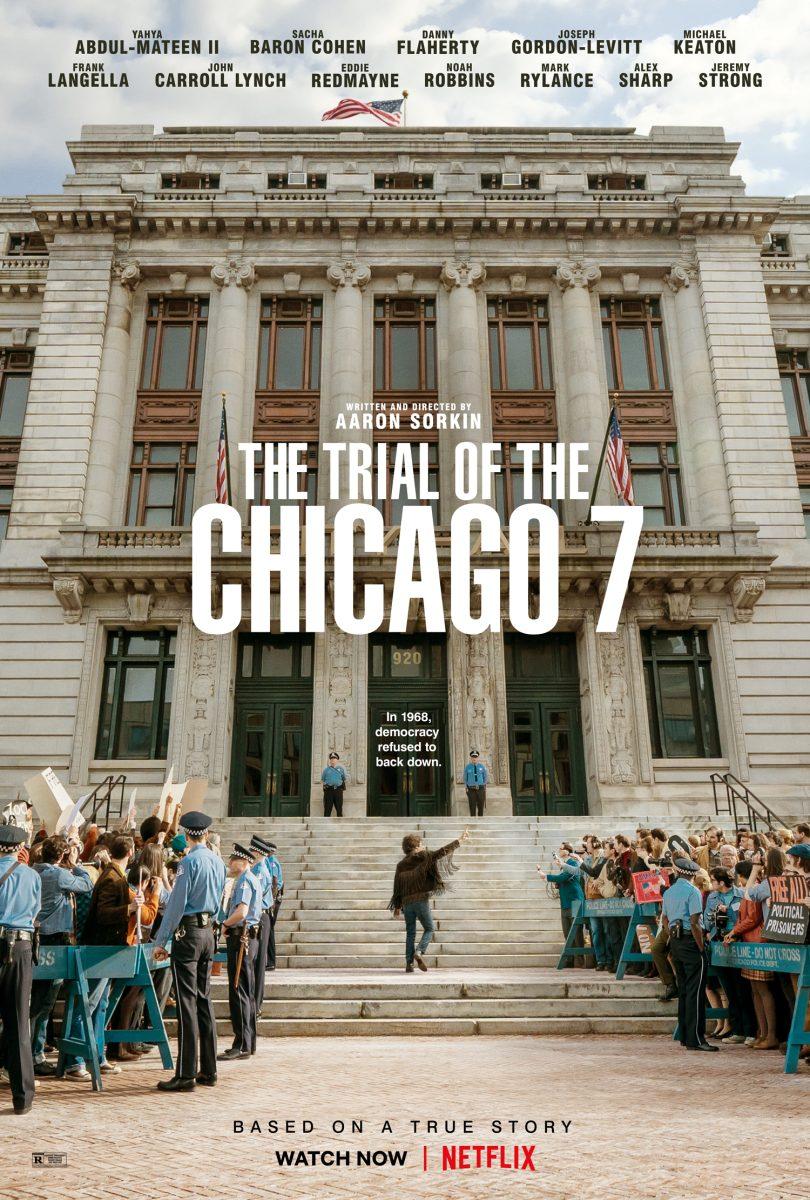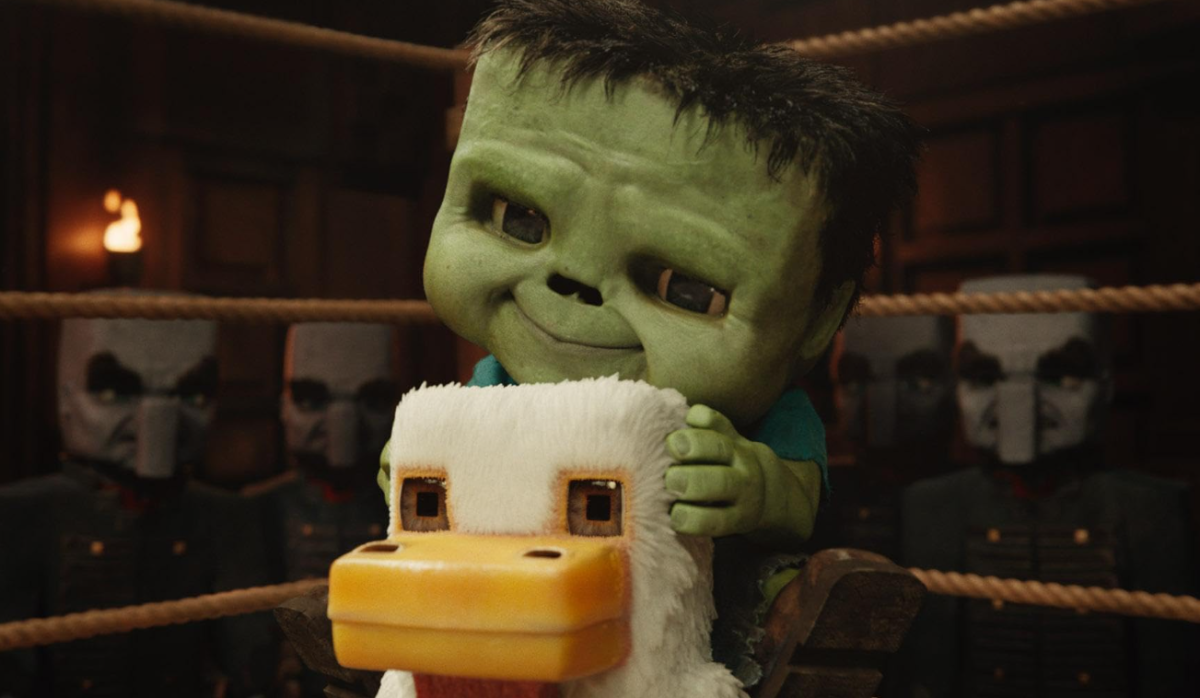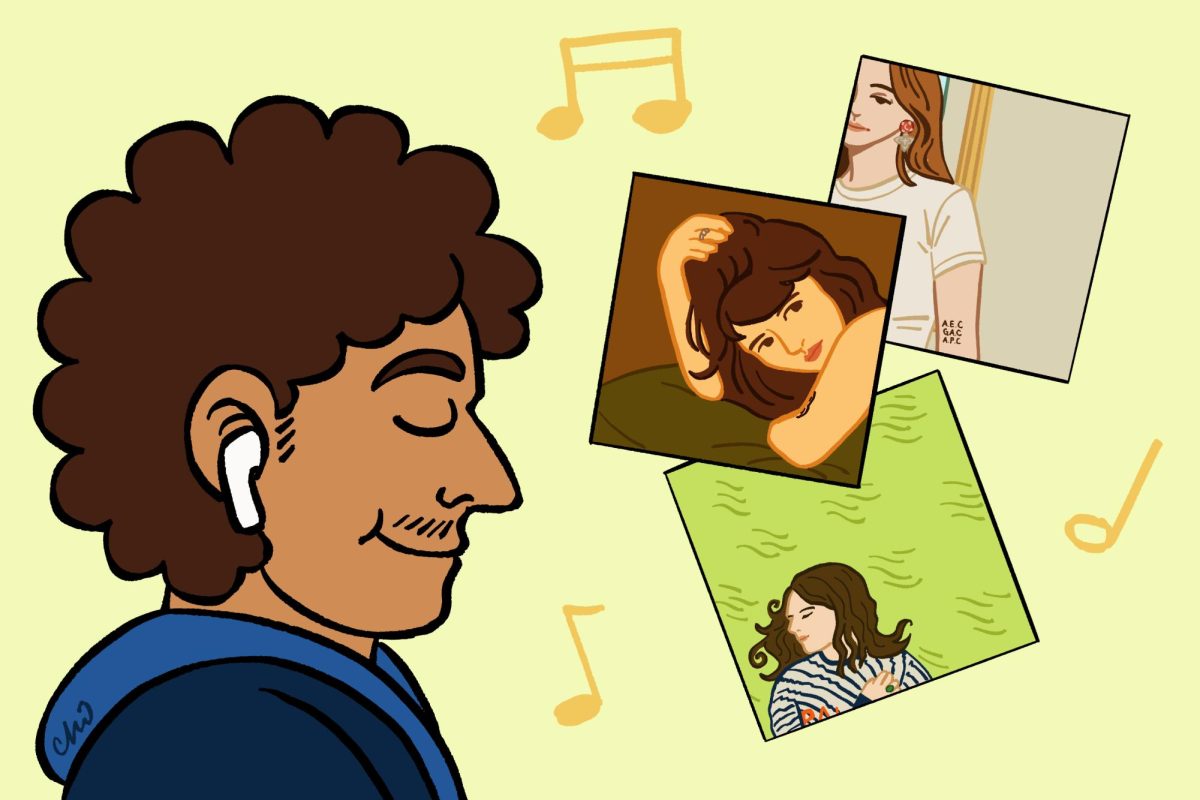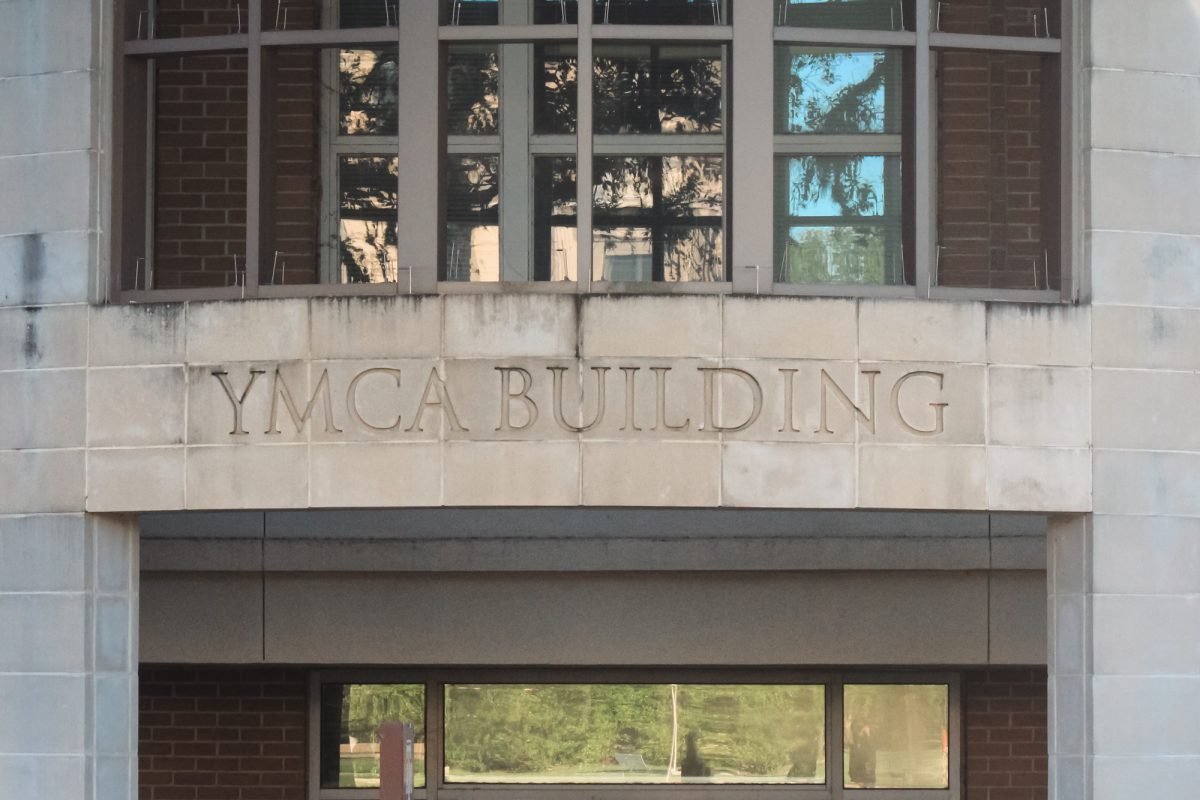America in the 1960s was dominated by civil rights protests, assassinations and craze over the first man to walk on the moon, but all the while, thousands laid down their lives for the Vietnam War. On Aug. 28, 1968, multiple organizers led thousands of people and filled the streets of Chicago in an anti-Vietnam War protest to demonstrate in front of the Democratic National Convention. Based on these events, “The Trial of the Chicago 7,” released on Oct. 20, 2020, focuses on the seven defendants of the trial that followed the event. These defendants had been charged with conspiracy of inciting riots, and the plot of the film brings the highlights of the case to life.
When the film begins, it jumps between six vital characters while blending historical footage of rising draft rates with upbeat, fast-paced background music, building a substantial foundation for the rest of the story. Writer-Director Aaron Sorkin created a unique interpretation of “The Trial of the Chicago 7,” and just as “the whole world [was] watching” the events unfold in 1968, he has given the world a chance to relive the efforts made to end the Vietnam War.
Throughout the film, the dialogue never hesitates to pull the story full circle in its complexity. Sorkin beautifully creates this film by making the writing and visuals an ultimate dynamic duo in each scene. Most of the story is set in a U.S. District Court, which allows the film to rely more on dialogue, but each actor that comes into the frame is ideally suited for the role. There is an art to the dialogue presented in this film, and it is beautiful to watch conversations blend to retell a true story on screen. There were several striking performances from the cast, specifically Mark Rylance and Sacha Baron Cohen, but two actors excelled beyond belief.
Who doesn’t love a good antagonist? In the case of “The Trial of the Chicago 7,” Frank Langella, who encaptures Judge Julius Hoffman, did a remarkable job of inciting frustration and anger. The entire plot is reliant on the conflict present in the bland courtroom, and Langella gave the performance of a lifetime, all while sitting in a chair the whole film. As the judge, Langella portrays hostility in such a way that he abuses his power. The actors who have the opportunity to engage with Langella could incite real anger because he performs so well, initiating heated banter in plenty of conversations.
Eddie Redmayne is not new to the big screen. Still, he especially excelled throughout this film because of his ability to showcase how his character, Tom Hayden, is written and captured his personality’s brilliance. Hayden uses his brain to fuel his passion throughout the film and makes logical decisions based on the sticky situation he is in. It feels as if these character traits almost came naturally to Redmayne. Sacha Baron Cohen’s character, Abbie Hoffman, in contrast, approaches situations with passion and humor, allowing him to balance out Hayden’s leadership style. Cohen’s performance introduced some lighthearted comedy that spiced up the overall story exactly when it was needed.
Sorkin continually shows the importance of the historic trial for what it is, and he reinforces why the trial happened in the first place: Wanting to end the Vietnam War. Evoking feelings of frustration, passion and patriotism, it is no shock “The Trial of the Chicago 7” is a 2021 Oscar nominee. Sorkin brilliantly re-told a story of one of the most notorious trials in history and deserves a round of applause.
Aaron Sorkin’s beautiful interpretation of “The Trial of the Chicago 7”
April 5, 2021
Photo by via imdb.com
The Trial of the Chicago 7 was released on October 16, 2020 on Netflix and has since been nominated for a 2021 Oscar.
0
Donate to The Battalion
$2790
$5000
Contributed
Our Goal
Your donation will support the student journalists of Texas A&M University - College Station. Your contribution will allow us to purchase equipment and cover our annual website hosting costs, in addition to paying freelance staffers for their work, travel costs for coverage and more!
More to Discover
















